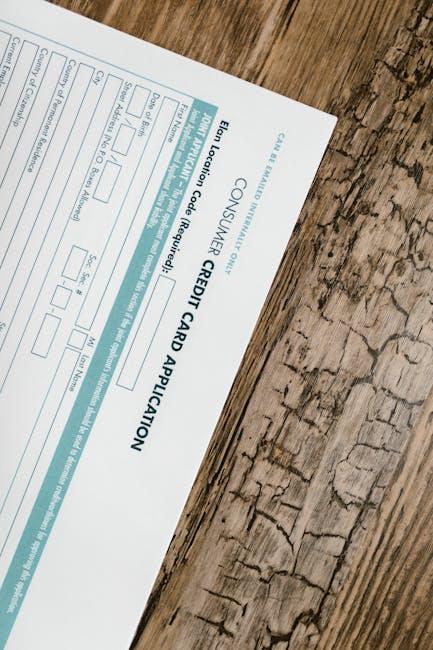Navigating the world of renters insurance can often feel overwhelming, particularly when it comes to filing a claim. Whether faced with a burst pipe, a stolen laptop, or the aftermath of a fire, understanding the intricacies of your policy and the claims process is crucial. This article aims to demystify the steps involved in filing a renters insurance claim, empowering you with the knowledge to handle unexpected events with confidence. From gathering essential documentation to communicating effectively with your insurance provider, we’ll explore the secrets to ensuring that you receive the support you need in challenging times. Unlocking these secrets not only protects your investments but also offers peace of mind, allowing you to focus on rebuilding rather than stressing over paperwork.
Understanding Your Policy and Coverage Options
When it comes to renters insurance, understanding your policy and the various coverage options available is essential to ensure you’re adequately protected. Let’s break down the key aspects of renters insurance that every tenant in the U.S. should know.
Types of Coverage:
- Personal Property Coverage: This is the fundamental coverage that protects your belongings against risks such as theft, fire, or vandalism. Ensure to take inventory of your possessions and assess how much coverage you need, usually expressed as a total dollar amount.
- Liability Coverage: This protects you in the event someone is injured in your rental unit or if your property causes damage to someone else’s property. It’s essential to have enough liability coverage to protect your assets.
- Additional Living Expenses (ALE): If your rental becomes uninhabitable due to a covered incident, this coverage helps pay for temporary housing and other living expenses incurred during your displacement.
- Medical Payments Coverage: This covers medical costs for guests injured on your property, regardless of fault. It prevents disputes and can often be a simple way to address minor injuries.
Understanding Policy Limits and Deductibles:
Every renters insurance policy will have specific limits and deductibles:
- Policy Limits: This is the maximum amount your insurance company will pay for covered losses. It’s advisable to choose limits that reflect the actual cash value of your belongings.
- Deductibles: A deductible is the amount you’ll pay out of pocket before your insurance kicks in. Opt for a deductible that fits your financial situation-higher deductibles may lower your monthly premiums, but also increase your out-of-pocket costs during a claim.
Common Exclusions:
Be aware that certain situations and items may not be covered under standard renters insurance policies:
- Natural disasters such as floods or earthquakes (consider additional coverage)
- High-value items like jewelry, art, and collectibles (may need a rider or separate policy)
- Intentional damage or neglect
Discounts and Bundle Options:
Many insurance providers offer various discounts that can help reduce your premiums:
- Multi-policy Discounts: If you bundle your renters insurance with other policies (like auto insurance) from the same provider, you may receive a significant discount.
- Claim-Free Discounts: If you have a history of filing minimal or no claims, you might qualify for lower rates.
- Safety Device Discounts: Installing smoke detectors, burglar alarms, or deadbolts can often result in premium savings.
| Coverage Type | Description | Typical Limits |
|---|---|---|
| Personal Property | Covers damage or loss of personal belongings | $10,000 to $100,000+ |
| Liability | Protects against legal claims for injury or property damage | $100,000 to $500,000 |
| Additional Living Expenses | Covers costs for temporary living arrangements | Varies by policy |
Understanding these key elements of your renters insurance policy will empower you to make informed decisions, ensuring you are well-protected in the face of unexpected events.

An Organized Approach to Documenting Your Loss
When dealing with the stress of a loss, having a systematic approach to documenting your situation can significantly ease the process of filing your renters insurance claim. Start by gathering essential information and evidence, which will help support your case effectively.
Here’s how to stay organized:
- Create a Document List: List all items that were damaged or lost. Include the following:
- Item description
- Purchase date
- Original value
- Replacement cost
- Take Photos: Visual evidence is critical. Ensure you:
- Capture detailed images of each item.
- Include photos of the damage to your property.
- Document any relevant areas of your home that were affected.
- Gather Receipts: Locate and organize any purchase receipts or proof of ownership, such as:
- Credit card statements
- Bank statements
- Warranty documents
- File Reports: If applicable, report the incident to the police (for theft or vandalism) and obtain a copy of the police report. This can be crucial for your claim.
- Organize Your Evidence: Consider using a folder or digital tool to keep your documents in order. Include:
- Claim forms
- Correspondence with your insurance provider
- Notes of conversations about your claim
| Item | Purchase Date | Original Value | Replacement Cost |
|---|---|---|---|
| Laptop | 01/15/2020 | $1,200 | $1,000 |
| Television | 07/25/2019 | $800 | $600 |
| Furniture Set | 03/10/2018 | $2,500 | $2,000 |
By maintaining organized records, you not only speed up the claims process but also ensure you receive the compensation you rightfully deserve. Take your time to gather everything methodically, as this structured approach will help your insurer process your claim more smoothly.

Navigating the Claims Process Step by Step
Filing a renters insurance claim can feel overwhelming, but breaking it down into manageable steps can simplify the process. Here’s how to navigate through it effectively:
- Review Your Policy: Before you start, familiarize yourself with your renters insurance policy. Pay attention to what’s covered, deductible amounts, and any exclusions.
- Document the Damage: Take thorough photographs or videos of the affected areas and items. This evidence is crucial for substantiating your claim.
- Contact Your Insurance Provider: Reach out to your insurer promptly. Use the customer service number provided on your policy documentation, or visit their website for guidance.
- File the Claim: Follow your insurer’s process for filing a claim. This may involve filling out a claim form online or providing a written statement of the incident.
- Keep Records: Maintain a folder with all related documents including your claim form, correspondence, photographs, and any receipts for temporary accommodations if applicable.
- Communicate Regularly: Stay in touch with your claims adjuster. It’s important to respond quickly to any requests for additional information.
- Review the Settlement Offer: Once your claim is processed, you will receive a settlement offer. Evaluate it against your documented losses and discuss any discrepancies with your insurer.
- Finalize the Claim: If you accept the offer, follow your insurer’s procedures to finalize the claim, which may include signing documents or providing final receipts.
Remember, each insurance provider may have specific steps or requirements, so always refer to your policy and communicate with your insurance company for clarification.
| Step | Action | Tip |
|---|---|---|
| 1 | Review Your Policy | Understanding coverage limits can prevent surprises. |
| 2 | Document the Damage | Be detailed with your documentation; specificity helps. |
| 3 | Contact Provider | Quick initial contact can expedite the process. |
| 4 | File the Claim | Completeness is key. Provide all requested information. |
| 5 | Communicate Regularly | Updating your adjuster keeps your claim moving. |
Following this step-by-step guide not only ensures you’re covering all necessary bases but also helps in receiving the benefits you deserve in a timely manner.

Tips for Maximizing Your Claim Settlement
Maximizing your renters insurance claim settlement involves a few strategic steps. Here are essential tips to ensure you receive the compensation you deserve:
- Document Everything: Take photos and videos of your damaged belongings. Ensure you have proof of ownership and value, such as receipts or credit card statements.
- Know Your Policy: Familiarize yourself with your coverage limits and exclusions. Understand what is covered under your specific policy to avoid surprises.
- File Promptly: Submit your claim as soon as possible after the incident. Most insurers have a deadline for reporting claims, and delays can hinder your settlement.
- Compile a Detailed Inventory: Create a comprehensive list of your damaged items. Include descriptions, purchase dates, and estimated replacement costs to strengthen your claim.
- Contact Your Insurer: Reach out to your insurance provider directly. Be honest and thorough when explaining the situation, and keep records of all communications.
- Seek Multiple Estimates: For costly items or damages, obtain quotes from various repair companies or second opinions to present to your insurer.
- Stay Organized: Keep all correspondence, receipts, and report numbers in a dedicated folder, both physically and digitally. This organization can expedite the process.
- Negotiate: Don’t be afraid to negotiate your settlement amount if the initial offer doesn’t meet your expectations. Present facts and figures as to why you believe a higher settlement is warranted.
- Consult an Expert: If your claim is substantial or complex, consider hiring a public adjuster. They advocate for you and can navigate the claim process effectively.
Adhering to these tips will ensure that you efficiently navigate your renters insurance claims process while maximizing your potential settlement. Remember, preparation and clarity are key.

To Wrap It Up
As we conclude our exploration of the ins and outs of filing your renter’s insurance claim, it’s essential to remember that preparedness is key. By understanding your policy, documenting your possessions, and being proactive in communication with your insurer, you can navigate the claims process with confidence. Whether facing the aftermath of a disaster or addressing minor disputes, knowledge is your greatest ally. With the secrets unlocked, you are now equipped to handle challenges that may come your way-empowering you to protect what matters most in your rental home. Remember, your peace of mind is just a claim away.














